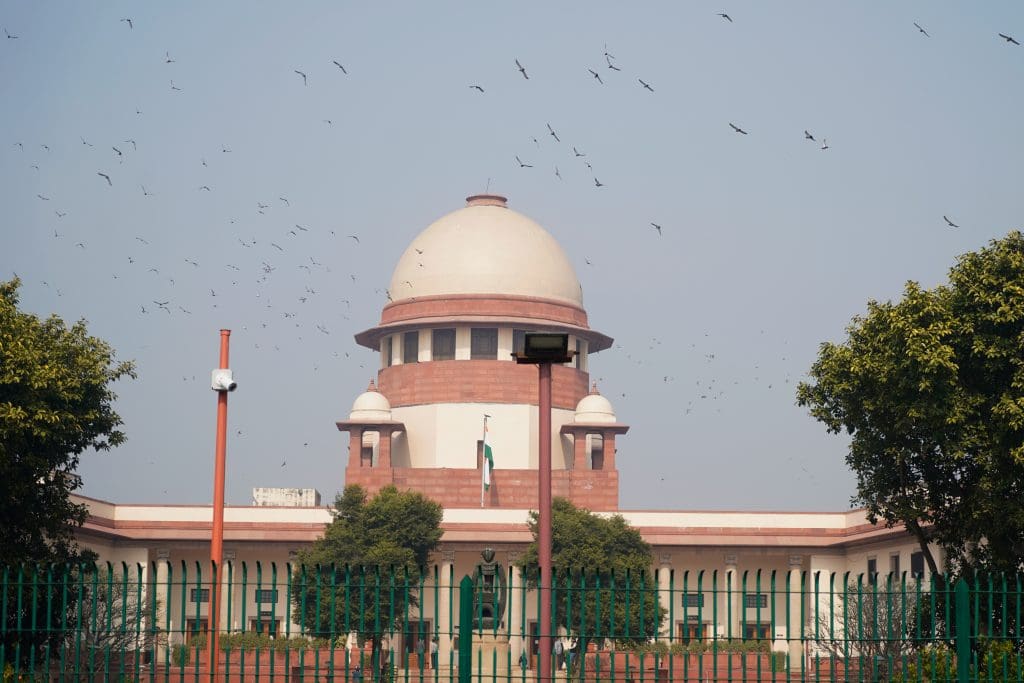
The Supreme Court has quashed the result of the election for the Mayor of Chandigarh after finding that presiding officer Anil Masih had deliberately invalidated eight ballots cast in favour of the Aam Aadmi Party (AAP)-Congress candidate Kuldeep Kumar.
The apex court on Tuesday said that it would not tolerate “subterfuges” that destroy electoral democracy even at the local level, while declaring the AAP’s Kumar as the new Mayor of the Union Territory of Chandigarh.
Masih’s “furtive” conduct had swung the electoral results in favour of the BJP’s Manoj Sonkar. The top court had intervened on 5 February to sequester the ballot papers and video records of the polling day.
On 19 February, a three-judge Bench headed by Chief Justice of India D.Y. Chandrachud voiced “deep concern” about the “horse trading taking place.” It was made in reference to the sudden shift of allegiances of three AAP councillors to the BJP, coinciding with Sonkar’s resignation as Mayor on the eve of the SC hearing.
“This court is duty-bound in exercise of its powers to do complete justice under Article 142 to ensure that the process of electoral democracy is not thwarted by such subterfuges. Allowing such a state of affairs to take place would be destructive of the most valued principles of democracy our country depends on,” Chief Justice Chandrachud observed.
“The court must step in to ensure that the basic mandate of the electoral democracy, albeit, at the local participatory level, is preserved,” Chief Justice Chandrachud said.
The court said that the returning officer Masih’s misconduct, by “making a single line in ink by way of a mark in the bottom half of the eight ballot papers so that these votes would be treated as invalid”, led to the “destruction of the fundamental democratic principles.”
The court said that Masih misused his capacity as a returning officer to unlawfully alter the course of the mayoral elections. He further made a “patently false statement” in the Supreme Court on February 19 that the eight ballot papers were already defaced by the time they had reached him.
“He has to be held accountable… He could not have been unmindful of the fact that he was making a statement prima facie false to his own knowledge,” Chief Justice Chandrachud said.
Article 142
The Supreme Court of India used its power under Article 142 of the Constitution to do “complete justice” and protect the sanctity of electoral democracy.
Article 142 of the Indian Constitution is a provision that empowers the Supreme Court to pass any decree or order necessary for doing complete justice in any case or matter pending before it. It also makes such decree or order enforceable throughout the territory of India.
The Article gives the Supreme Court a unique power to transcend the limitations of law or statute in order to ensure justice for the parties involved and it enables the top court to exercise executive and legislative functions in certain situations, such as issuing guidelines, directions, or orders to the government or other authorities.
The Article 142 further allows the Supreme Court to intervene in matters of public interest, human rights, constitutional values, or fundamental rights, and to protect them from any violation or infringement and it enhances the Supreme Court’s role as the guardian of the constitution and the final arbiter of the law, and as a source of judicial activism and innovation.
Using Article 142, earlier the top court ordered the release of undertrial prisoners who have spent more than half of the maximum sentence prescribed for their offences.
With the same provision, the apex court also directed the government to provide free and compulsory education to children between 6 and 14 years of age.
Appointing a committee to oversee the investigation and prosecution of the 2G spectrum scam, cancelling the allocation of 214 coal blocks that were found to be illegal and arbitrary and granting permanent commission to women officers in the Indian Army were some examples of the Supreme Court’s use of Article 142.
Article 142 is supported by several other provisions, including Article 32 (which ensures the right to constitutional remedies), Article 141 (mandating that all courts within India must abide by the Supreme Court’s decisions), and Article 136 (which allows for the Special Leave Petition). This collective framework is known by the term “judicial activism.”



